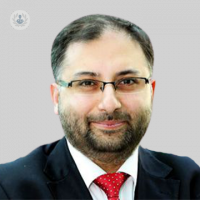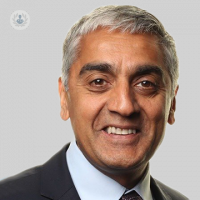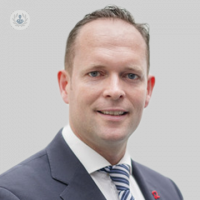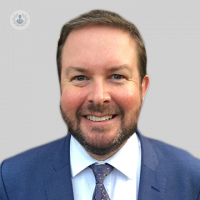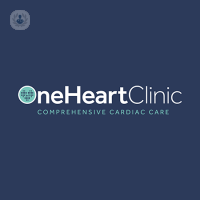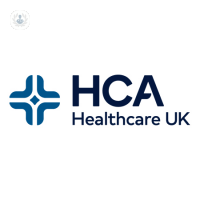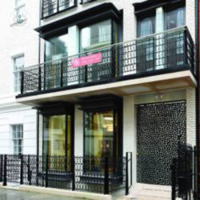What is dilated cardiomyopathy?
Dilated cardiomyopathy is a disease of the heart muscle that results in the heart not being able to pump blood around the body. It usually starts in the left ventricle. The left ventricle (hearts main blood pumping chamber) becomes weak, stretched and thin and loses the ability to pump a sufficient amount of blood to the rest of the body.

What are the symptoms of dilated cardiomyopathy?
Dilated cardiomyopathy presents symptoms such as:
- Fatigue
- Chest pain
- Swelling (oedema or edema) in the legs, ankles and feet
- Shortness of breath (dyspnea)
- Heart murmurs
If you experience shortness of breath and other symptoms of cardiomyopathy as mentioned above, see your doctor right away and call emergencies if you experience chest pain that won’t go away after a few minutes.
What causes dilated cardiomyopathy?
The main causes include:
- Coronary heart disease (it is the most common cause and can be due to damage to the heart after a heart attack or damage to the coronary arteries)
- Diabetes
- Alcohol abuse
- Substance abuse or certain cancer medications
- Arrhythmias (abnormal heart rhythms)
- Childbirth complications
Can dilated cardiomyopathy be prevented?
By taking certain lifestyle measures, dilated cardiomyopathy can be prevented or the risks of developing it minimized. If a person avoids drinking excessive amounts of alcohol and follows a healthy and balanced diet, they are less likely to suffer from the condition. Likewise, it is important for people who undergo therapeutic radiation, who take heart medication and pregnant women to have regular check-ups with their doctor to avoid symptoms of dilated cardiomyopathy.
What is the treatment for dilated cardiomyopathy?
Most patients with this condition must take prescribed medication to treat the symptoms and to prevent further complications. In some cases, surgery may be needed, which may include the following techniques:
- Pacemaker
- Defibrillator
- Repairment or replacement of valves
- Coronary artery bypass surgery
If the cardiomyopathy is advanced, the required treatment may be:
- Heart transplant
- Placement of an artificial heart or a device into the left ventricle to assist the pumping of blood around the body
Dilated cardiomyopathy
What is dilated cardiomyopathy?
Dilated cardiomyopathy is a disease of the heart muscle that results in the heart not being able to pump blood around the body. It usually starts in the left ventricle. The left ventricle (hearts main blood pumping chamber) becomes weak, stretched and thin and loses the ability to pump a sufficient amount of blood to the rest of the body.

What are the symptoms of dilated cardiomyopathy?
Dilated cardiomyopathy presents symptoms such as:
- Fatigue
- Chest pain
- Swelling (oedema or edema) in the legs, ankles and feet
- Shortness of breath (dyspnea)
- Heart murmurs
If you experience shortness of breath and other symptoms of cardiomyopathy as mentioned above, see your doctor right away and call emergencies if you experience chest pain that won’t go away after a few minutes.
What causes dilated cardiomyopathy?
The main causes include:
- Coronary heart disease (it is the most common cause and can be due to damage to the heart after a heart attack or damage to the coronary arteries)
- Diabetes
- Alcohol abuse
- Substance abuse or certain cancer medications
- Arrhythmias (abnormal heart rhythms)
- Childbirth complications
Can dilated cardiomyopathy be prevented?
By taking certain lifestyle measures, dilated cardiomyopathy can be prevented or the risks of developing it minimized. If a person avoids drinking excessive amounts of alcohol and follows a healthy and balanced diet, they are less likely to suffer from the condition. Likewise, it is important for people who undergo therapeutic radiation, who take heart medication and pregnant women to have regular check-ups with their doctor to avoid symptoms of dilated cardiomyopathy.
What is the treatment for dilated cardiomyopathy?
Most patients with this condition must take prescribed medication to treat the symptoms and to prevent further complications. In some cases, surgery may be needed, which may include the following techniques:
- Pacemaker
- Defibrillator
- Repairment or replacement of valves
- Coronary artery bypass surgery
If the cardiomyopathy is advanced, the required treatment may be:
- Heart transplant
- Placement of an artificial heart or a device into the left ventricle to assist the pumping of blood around the body
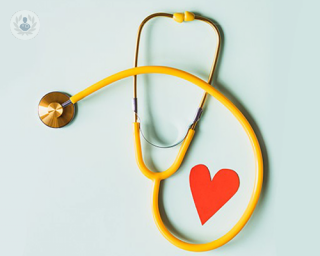

Your guide to dilated cardiomyopathy: causes, symptoms and treatments
By Dr Resham Baruah
2025-01-26
Dilated cardiomyopathy (DCM) is a condition in which the heart chambers become enlarged, stopping your heart from pumping blood efficiently around the body. Dr Resham Baruah walks us through the causes of DCM, the symptoms and the treatment available. See more
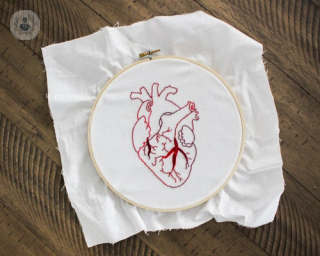

Frequently asked questions about myocarditis: Part one
By Dr Sabiha Gati
2025-01-26
Myocarditis is an issue that causes inflammation of the heart and can lead to serious problems. Most people who are diagnosed with this condition are fit and healthy, so it's important to be informed about it. Expert cardiologist Dr Sabiha Gati is here to share her knowledge on this condition. See more
Experts in Dilated cardiomyopathy
-
Dr Fakhar Khan
CardiologyExpert in:
- Atrial Fibrillation
- Electrophysiology study
- Dilated cardiomyopathy
- Electrocardiogram
- Pacemaker
- Arrhythmia
-
Professor Sanjay Sharma
CardiologyExpert in:
- Sports cardiology
- Dilated cardiomyopathy
- Sudden death
- Hereditary diseases
- Echocardiogram
- Heart failure
-
Dr Alexander Lyon
CardiologyExpert in:
- Takotsubo cardiomyopathy (broken heart syndrome)
- Cardio-oncology
- Heart failure
- Hypertension (high blood pressure)
- Hypertrophic cardiomyopathy
- Dilated cardiomyopathy
-
Professor Gerald Carr-White
CardiologyExpert in:
- Heart failure
- Dilated cardiomyopathy
- Hypertrophic cardiomyopathy
- Hereditary diseases
- Chest pain
- Valvular heart disease
- See all

One Heart Clinic - Cardiology Consulting & Diagnostic Centre
One Heart Clinic - Cardiology Consulting & Diagnostic Centre
68 Harley Street, Marylebone
No existe teléfono en el centro.
By using the telephone number provided by TOP DOCTORS, you automatically agree to let us use your phone number for statistical and commercial purposes. For further information, read our Privacy Policy
Top Doctors

London Bridge Hospital - part of HCA Healthcare
London Bridge Hospital - part of HCA Healthcare
27 Tooley St
No existe teléfono en el centro.
By using the telephone number provided by TOP DOCTORS, you automatically agree to let us use your phone number for statistical and commercial purposes. For further information, read our Privacy Policy
Top Doctors

77 Wimpole Street
77 Wimpole Street
77 Wimpole Street, London. W1G 9RU
No existe teléfono en el centro.
By using the telephone number provided by TOP DOCTORS, you automatically agree to let us use your phone number for statistical and commercial purposes. For further information, read our Privacy Policy
Top Doctors
-
One Heart Clinic - Cardiology Consulting & Diagnostic Centre
68 Harley Street, Marylebone, W1G Marylebone LondonExpert in:
- Arrhythmia
- Cardiology
- Chest pain
- Cardiovascular disease
- Breathlessness
- Palpitations
-
London Bridge Hospital - part of HCA Healthcare
27 Tooley St, Central LondonExpert in:
- 24-hour service
- Cardiology
- Minimal access surgery (keyhole surgery)
- Orthopaedic surgery
- Cardiovascular disease
- Gastroenterology
-
77 Wimpole Street
77 Wimpole Street, London. W1G 9RU, W1G Marylebone LondonExpert in:
- Homecare
- Cardiology
- Preventive cardiology
- Cardiovascular disease
- Respiratory diseases
- Hypertension
- See all
- Most viewed diseases, medical tests, and treatments
- Respiratory infection
- Osteoporosis
- Narcolepsy
- Snoring
- Polysomnography (sleep study)
- Alzheimer's disease
- Chronic headache
- Electrophysiology study
- Autoimmune diseases
- Joint pain
